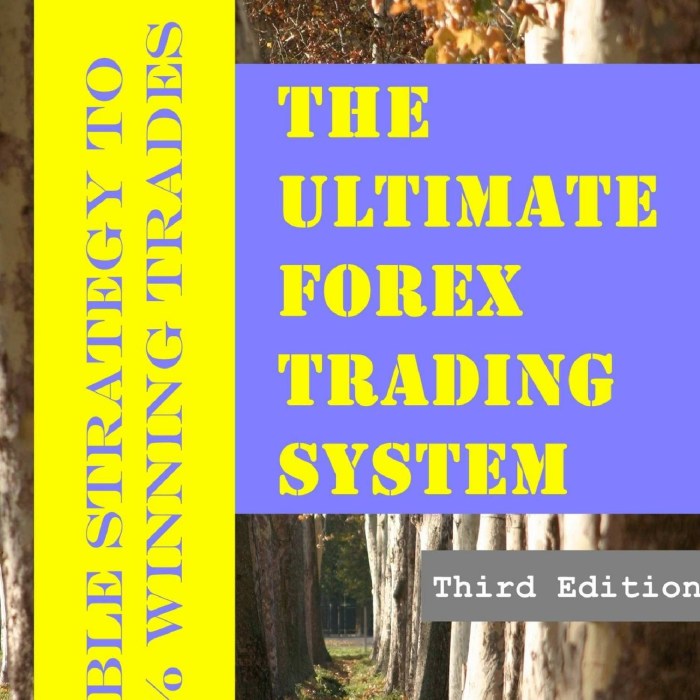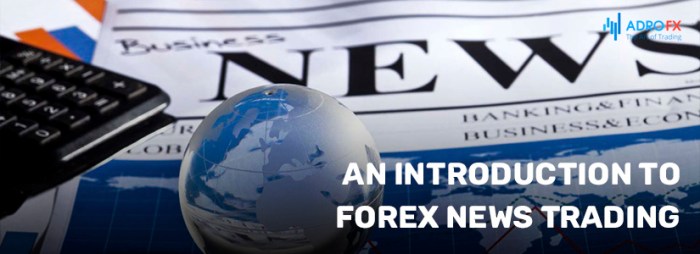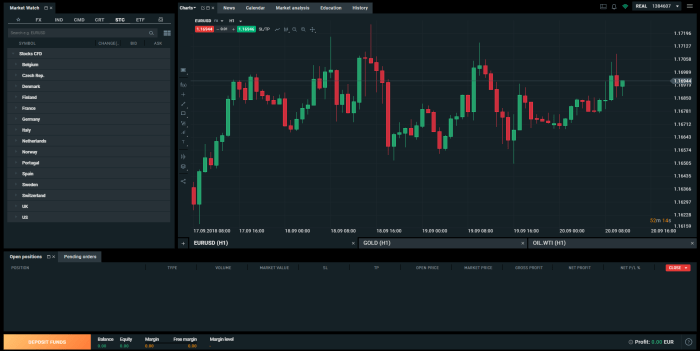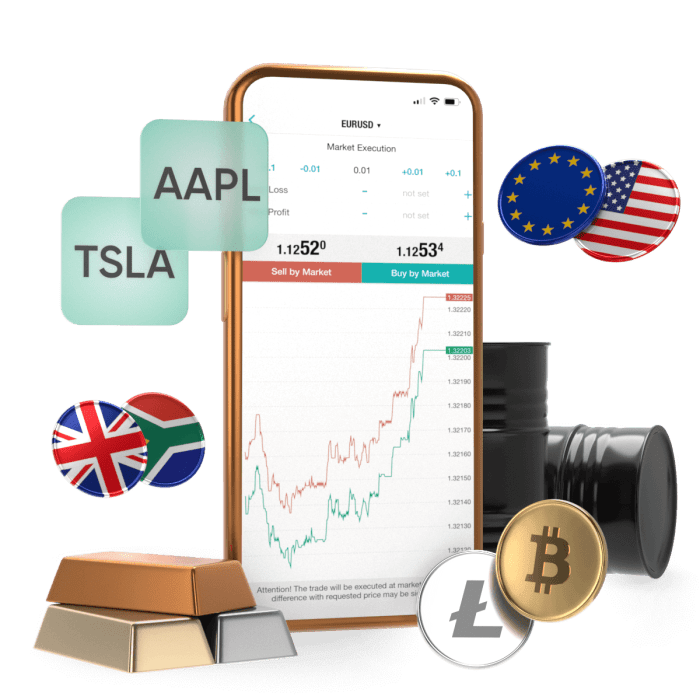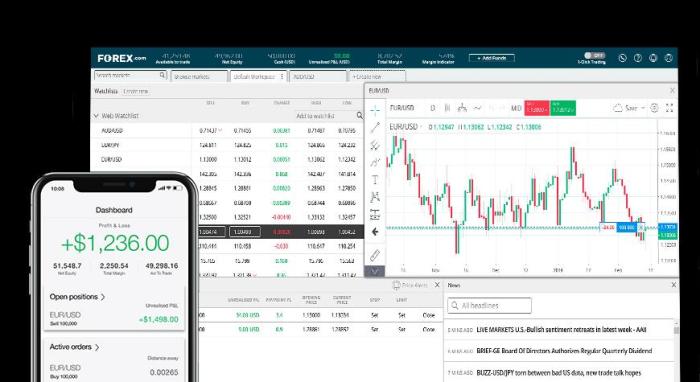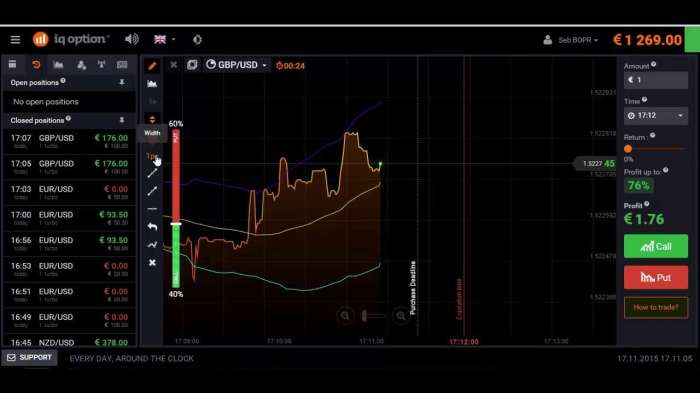
The Impact of Geopolitics on Forex Trading: Ever wondered how a political squabble halfway across the world can suddenly tank your investments? It’s all about the interconnectedness of global finance. From simmering tensions to full-blown conflicts, geopolitical events send ripples – or sometimes tidal waves – through currency markets. This isn’t just about abstract numbers; it’s about understanding how real-world power plays directly impact your portfolio.
Forex trading, at its core, is the exchange of one currency for another. But this seemingly simple transaction becomes incredibly complex when you factor in the ever-shifting landscape of international relations. Think of Brexit, the Russian invasion of Ukraine, or even a surprise election result – these events drastically alter investor sentiment, leading to rapid currency fluctuations. Understanding these influences is crucial for navigating the forex market successfully.
Introduction

The forex market, a global behemoth trading trillions of dollars daily, isn’t immune to the whims of world politics. Geopolitical events, from elections and trade wars to military conflicts and social unrest, can send shockwaves through currency values, creating both opportunities and risks for traders. Understanding this intricate relationship is crucial for navigating the complexities of forex trading and potentially maximizing profits. Forex trading, simply put, is the buying and selling of currencies in the global foreign exchange market. The key players include banks, corporations, hedge funds, and individual investors, all interacting to determine exchange rates.
Geopolitical events significantly impact forex markets by influencing investor sentiment, economic forecasts, and central bank policies. These influences then directly impact the supply and demand for a given currency, leading to fluctuations in its value against others.
Geopolitical Events and Currency Fluctuations
Global political events often trigger rapid and significant changes in currency values. For example, unexpected political shifts can cause uncertainty, leading investors to move their money to perceived “safe haven” currencies like the US dollar or the Swiss franc. Conversely, positive news about a country’s economy or political stability can boost its currency’s value. The relationship is not always straightforward; sometimes, a negative event can be priced in by the market beforehand, meaning the actual impact is less dramatic than anticipated. However, unforeseen events or escalating tensions consistently create volatility.
Examples of Geopolitical Impacts on Forex
The Brexit referendum in 2016 serves as a prime example. The vote to leave the European Union sent the British pound plummeting against other major currencies as investors reacted to the uncertainty surrounding the UK’s future economic relationship with the EU. Similarly, the 2014 annexation of Crimea by Russia triggered a sharp decline in the ruble as international sanctions and capital flight ensued. The ongoing war in Ukraine has also significantly impacted global markets, with the Euro and the US dollar experiencing periods of both strength and weakness depending on the evolving situation and market reactions. These examples highlight the interconnectedness of geopolitics and forex trading, emphasizing the need for traders to stay informed about global events and their potential consequences.
Geopolitical Risk and Volatility
Geopolitical events, from simmering tensions to outright conflict, significantly impact global currency markets. The interconnectedness of the global economy means that political instability in one region can create ripple effects felt worldwide, influencing investor sentiment and ultimately, exchange rates. Understanding this dynamic is crucial for navigating the complexities of forex trading.
Political instability in a specific region often leads to a decline in the value of its currency. Investors, fearing potential economic disruption or capital flight, tend to sell the affected nation’s currency, driving down its value against other currencies. For example, prolonged political uncertainty in a country might deter foreign investment, impacting economic growth and subsequently weakening its currency. This is often exacerbated by capital outflows as investors seek safer havens for their assets.
The Impact of International Conflicts on Global Currency Markets, The Impact of Geopolitics on Forex Trading
International conflicts trigger significant volatility in global currency markets. The uncertainty surrounding the outcome of a conflict, coupled with potential economic sanctions or disruptions to trade, creates a climate of fear among investors. Safe-haven currencies, such as the US dollar, Japanese yen, or Swiss franc, typically appreciate during such periods as investors seek refuge from risk. Conversely, currencies of nations directly involved in the conflict or those heavily reliant on trade with affected regions often depreciate. The 2014 annexation of Crimea by Russia, for example, led to a sharp decline in the value of the Russian ruble and increased volatility in global markets. The subsequent sanctions imposed on Russia further amplified this effect.
Mechanisms Linking Geopolitical Uncertainty to Forex Market Volatility
Geopolitical uncertainty translates into forex market volatility through several interconnected mechanisms. Firstly, investor sentiment plays a crucial role. News of escalating tensions or unexpected political developments can trigger rapid shifts in market sentiment, leading to sudden buying or selling pressure on specific currencies. Secondly, changes in risk appetite significantly influence currency values. During periods of high geopolitical risk, investors tend to move towards lower-risk assets, driving demand for safe-haven currencies and reducing demand for riskier ones. Thirdly, speculation also contributes to volatility. Traders anticipate future market movements based on their assessment of geopolitical risks, further amplifying price fluctuations. This creates a feedback loop where initial reactions to news events are further intensified by subsequent trading activity.
Currency Pair Volatility During Geopolitical Risk
The following table illustrates the volatility of selected currency pairs during periods of heightened geopolitical risk. Volatility is measured using the average daily percentage change in the exchange rate. Note that these are illustrative examples and actual volatility can vary depending on the specific circumstances and time frame.
| Currency Pair | Period of High Geopolitical Risk | Average Daily Volatility (%) | Contributing Factors |
|---|---|---|---|
| USD/RUB | March 2014 – August 2014 (Crimea Annexation) | 2-3% | Sanctions, capital flight |
| EUR/USD | June 2016 (Brexit Referendum) | 1-1.5% | Uncertainty about UK’s future relationship with EU |
| GBP/USD | June 2016 (Brexit Referendum) | 2-2.5% | Uncertainty about UK’s economic future |
| USD/JPY | September 2022 (Ukraine War) | 0.8-1.2% | Safe-haven flows into Yen |
The Role of Central Banks
Geopolitical events don’t just ripple through financial markets; they directly impact the decisions and actions of central banks worldwide. These institutions, responsible for maintaining price stability and managing their national currencies, find themselves constantly navigating the turbulent waters of international relations. Their responses, in turn, significantly influence forex trading dynamics.
Central bank actions are profoundly shaped by geopolitical factors. A sudden escalation of international tensions, for instance, can trigger capital flight, impacting exchange rates. Similarly, sanctions imposed on a country can dramatically alter its currency’s value and its central bank’s ability to intervene effectively. The interplay between geopolitical risk and monetary policy is a complex dance, requiring skillful maneuvering to maintain stability.
Central Bank Strategies for Mitigating Geopolitical Impacts
Central banks employ a range of strategies to cushion the blow of geopolitical shocks on their currencies. These actions aim to maintain confidence in the currency, prevent excessive volatility, and support economic stability. The specific tools and approaches, however, vary considerably depending on the nature of the shock, the bank’s mandate, and the overall economic context.
- Interest Rate Adjustments: Raising interest rates can attract foreign investment, boosting demand for the currency and stabilizing its value. Conversely, lowering rates can stimulate domestic demand but might weaken the currency in the short term. The Bank of England, for example, frequently adjusts interest rates in response to global economic uncertainties.
- Foreign Exchange Interventions: Central banks can directly intervene in the forex market by buying or selling their currency to influence its exchange rate. This is often done to counteract sharp fluctuations caused by geopolitical events. China’s central bank has been known to use this strategy to manage the renminbi’s value.
- Quantitative Easing (QE): This involves injecting liquidity into the financial system by purchasing assets, which can help stabilize markets during times of stress. The Federal Reserve’s QE programs following the 2008 financial crisis and the COVID-19 pandemic are prime examples of this strategy.
- Communication and Guidance: Clear and transparent communication from central banks can help manage market expectations and reduce uncertainty. This can involve statements on monetary policy decisions, press conferences, and forward guidance on future actions. The European Central Bank (ECB) is known for its detailed communication strategy.
Comparative Responses to Geopolitical Shocks
Different central banks often respond to similar geopolitical shocks in distinct ways, reflecting their unique mandates, economic structures, and risk tolerances. These variations can create opportunities and challenges for forex traders.
- The US Federal Reserve (Fed) tends to prioritize domestic economic stability, often focusing on inflation and employment. Its responses to geopolitical events are usually carefully calibrated to avoid excessive market disruption, balancing domestic concerns with global implications.
- The European Central Bank (ECB), with its focus on the Eurozone as a whole, faces the added complexity of managing diverse national economies with varying sensitivities to geopolitical events. Its response might involve coordinated actions with other Eurozone central banks.
- The Bank of Japan (BOJ), historically known for its commitment to maintaining low interest rates, might adopt a more cautious approach to interest rate adjustments in response to geopolitical shocks compared to other central banks. Its focus is often on domestic economic growth and price stability within a framework of low interest rates.
Impact on Specific Currency Pairs
Geopolitical events rarely impact currency pairs in isolation. Instead, they trigger a complex ripple effect across global markets, influencing investor sentiment and ultimately, exchange rates. Understanding these impacts requires analyzing specific currency pairs and the geopolitical factors most likely to affect them.
Geopolitical risk significantly impacts currency valuations, often leading to increased volatility. The interconnectedness of global markets means that events in one region can have knock-on effects on seemingly unrelated currency pairs. This section will explore how specific geopolitical events have influenced three major currency pairs: EUR/USD, USD/JPY, and GBP/USD.
EUR/USD and the Eurozone Crisis
The Eurozone crisis, spanning roughly from 2009 to 2012, dramatically affected the EUR/USD exchange rate. Concerns about the solvency of several Eurozone countries, particularly Greece, led to significant capital flight and a weakening of the Euro. The uncertainty surrounding the future of the Eurozone fueled speculation and increased volatility in the EUR/USD pair. For example, the Greek debt crisis in 2010 and 2011 saw the Euro depreciate significantly against the US dollar as investors sought safer havens in the US currency. This period demonstrated the considerable influence of geopolitical instability within a currency bloc on its exchange rate against external currencies.
USD/JPY and US-China Trade Tensions
The escalating trade war between the United States and China from 2018 onwards had a pronounced effect on the USD/JPY exchange rate. As investors reacted to the uncertainty and potential negative economic consequences of the trade war, the Japanese Yen, often considered a safe-haven currency, appreciated against the US dollar. Increased global risk aversion led to a surge in demand for the Yen, reflecting its perceived safety during periods of geopolitical turmoil. Conversely, periods of relative calm or positive developments in trade negotiations tended to see the Yen depreciate slightly against the dollar. This illustrates how trade disputes and broader geopolitical tensions can influence the value of a safe-haven currency like the Yen.
GBP/USD and Brexit
The Brexit referendum in 2016 and the subsequent negotiations surrounding the UK’s withdrawal from the European Union significantly impacted the GBP/USD exchange rate. The uncertainty surrounding the terms of Brexit and its potential economic consequences led to substantial volatility in the pound. Initially, the vote to leave the EU caused a sharp depreciation of the pound against the dollar. Subsequent developments, such as the triggering of Article 50 and the various negotiation phases, continued to influence the GBP/USD rate, reflecting market sentiment towards the evolving Brexit situation. The prolonged uncertainty created a highly volatile environment for the GBP/USD pair, highlighting the significant influence of domestic geopolitical events on a currency’s value.
Visual Representation of Geopolitical Impacts on Currency Pairs
Imagine a three-part graph.
Part 1: EUR/USD (2009-2012): The line representing the EUR/USD exchange rate shows a gradual decline during the peak of the Eurozone crisis (2010-2012), marked by downward spikes coinciding with major announcements related to Greek debt and other Eurozone sovereign debt issues. The line then shows a slow recovery after the height of the crisis.
Part 2: USD/JPY (2018-2020): The graph illustrates the USD/JPY exchange rate. Periods of escalating US-China trade tensions are marked by upward spikes in the Yen (lower USD/JPY value), reflecting increased demand for the safe-haven currency. Periods of relative calm in trade negotiations show a slight downward trend in the Yen (higher USD/JPY value).
Part 3: GBP/USD (2016-2020): A sharp drop in the GBP/USD rate is visible immediately following the Brexit referendum in 2016. Subsequent periods of heightened uncertainty around Brexit negotiations show significant volatility, with fluctuations reflecting market sentiment related to the ongoing negotiations. The graph illustrates the impact of significant events such as the triggering of Article 50 and the various stages of negotiations.
This visual representation, though textual, helps illustrate how specific geopolitical events have directly correlated with significant fluctuations in these three major currency pairs.
Economic Sanctions and Currency Markets
Economic sanctions, a powerful tool of international pressure, significantly impact the targeted nation’s economy and, consequently, its currency. These measures, ranging from trade restrictions to asset freezes, disrupt financial flows, investor confidence, and overall economic activity, creating ripples throughout global currency markets. Understanding this complex interplay is crucial for anyone navigating the forex landscape.
The immediate effect on the sanctioned country’s currency is usually a sharp devaluation. Reduced foreign investment, capital flight, and decreased export earnings all contribute to a weakening exchange rate. This devaluation can, paradoxically, offer some short-term advantages, such as making exports more competitive. However, this benefit is often overshadowed by the long-term consequences of economic stagnation and reduced access to international finance.
Expand your understanding about How to Use Support and Resistance Levels in Forex with the sources we offer.
Impact on the Targeted Country’s Currency
The impact manifests in several ways. Reduced foreign direct investment (FDI) directly shrinks the demand for the local currency, pushing its value down. Simultaneously, capital flight, as investors seek safer havens, further exacerbates the devaluation. The inability to access international credit markets increases borrowing costs, hindering economic growth and putting further downward pressure on the currency. Ultimately, the extent of the currency’s depreciation depends on the severity and duration of the sanctions, the country’s economic resilience, and the availability of alternative trade partners.
Impact on Global Currency Markets
International sanctions don’t just affect the targeted country; they can also trigger volatility in global currency markets. The uncertainty created by sanctions can lead investors to seek safer assets, often driving up the value of currencies perceived as havens, such as the US dollar, Japanese yen, or Swiss franc. Conversely, currencies of countries with close economic ties to the sanctioned nation may also experience negative spillover effects, reflecting concerns about contagion. The overall impact depends on the interconnectedness of global economies and the perceived risk of wider geopolitical instability.
Examples of Sanctions’ Impact on Exchange Rates
The imposition of sanctions against Iran in 2012, for example, led to a significant devaluation of the Iranian rial. Similarly, sanctions against Russia following its annexation of Crimea in 2014 and the subsequent invasion of Ukraine in 2022 caused a sharp decline in the value of the ruble, although the impact was somewhat mitigated by government intervention. These cases highlight the unpredictable nature of sanctions’ effects, as they depend on various factors, including the strength of the targeted economy, the effectiveness of countermeasures, and the overall global economic climate.
Short-Term and Long-Term Effects of Sanctions on the Ruble
| Effect | Short-Term (0-2 years) | Long-Term (2+ years) |
|---|---|---|
| Exchange Rate | Sharp devaluation, significant volatility | Gradual stabilization, potential for long-term weakness depending on sanctions’ continuation and economic reforms |
| Inflation | Increased inflation due to import costs and reduced supply | Inflation may remain elevated if sanctions persist and economic reforms are insufficient |
| Economic Growth | Significant contraction in GDP | Slowed growth, potential for structural damage to the economy |
| Foreign Investment | Sharp decline in FDI | Limited foreign investment, difficulty attracting new capital |
Political Elections and Forex Trading
Political elections, particularly major ones, can significantly impact currency values. The outcome of an election often reflects a shift in a country’s political and economic direction, leading to market uncertainty and volatility until investors assess the implications of the new leadership. This uncertainty translates directly into fluctuations in the value of the nation’s currency.
The market’s reaction to election results is complex and depends on numerous factors, including the candidates’ platforms, the prevailing economic climate, and investor sentiment. A surprise victory for a candidate with radically different policies can trigger dramatic shifts, while a predictable outcome might result in only minor adjustments. Furthermore, the global interconnectedness of financial markets means that even elections in smaller countries can have ripple effects on global currency values.
Market Reactions to Election Results in Specific Countries
The 2016 US presidential election serves as a prime example. The unexpected victory of Donald Trump caused significant volatility in the US dollar. Initially, the dollar weakened against other major currencies as investors reacted to Trump’s protectionist rhetoric and uncertainty about his economic policies. However, the dollar subsequently strengthened as investors anticipated potential fiscal stimulus measures. In contrast, the 2017 French presidential election saw a relatively calm market reaction, despite the presence of populist candidates. The re-election of Emmanuel Macron, seen as a pro-European Union and market-friendly leader, resulted in a strengthening of the Euro. These contrasting examples highlight the nuanced nature of market responses.
Comparison of Market Responses Across Different Political Systems
Comparing market responses across countries with different political systems reveals interesting patterns. Elections in countries with stable, established democracies often produce more predictable market reactions, as investors have a clearer understanding of the potential policy changes. For example, elections in Canada or Germany tend to have a less dramatic impact on their respective currencies compared to elections in countries with more volatile political landscapes. In contrast, elections in countries with less established democracies or those undergoing significant political transitions can lead to more dramatic and unpredictable market swings. The 2019 Indian general election, for instance, saw some market volatility, reflecting investor concerns about the new government’s economic policies, although the overall impact was less severe than initially feared. This variability underscores the importance of understanding the specific political context of each election.
Predicting Geopolitical Impact on Forex
Predicting how geopolitical events will ripple through the forex market is a notoriously tricky business. While seasoned traders and analysts can identify potential risks, accurately forecasting the market’s reaction remains a significant challenge, often resulting in unexpected volatility. The inherent complexity of international relations and the unpredictable nature of human behavior contribute significantly to this difficulty.
Geopolitical events are rarely isolated incidents; they often interact in complex ways, creating a tangled web of cause and effect that is difficult to unravel. Furthermore, the speed and scale of information dissemination in the digital age means that market reactions can be swift and dramatic, leaving little time for considered analysis.
Challenges in Predicting Geopolitical Impact
The inherent unpredictability of geopolitical events makes precise forecasting exceptionally difficult. Multiple intertwined factors influence market reactions, ranging from the specific nature of the event itself to the broader global economic climate and investor sentiment. Unexpected escalations, unforeseen alliances, and the sheer complexity of international power dynamics all contribute to uncertainty. For example, predicting the precise impact of a sudden military conflict is challenging because its economic consequences, from disrupted supply chains to refugee flows, are hard to quantify in advance. Similarly, the response of different governments and international organizations can vary significantly, making it difficult to anticipate the overall effect on currency values.
Factors Influencing Prediction Accuracy
Several key factors significantly impact the accuracy of geopolitical risk assessments in forex trading. These include the speed and reliability of information flow, the diversity of market participants’ interpretations, and the influence of pre-existing economic conditions.
- Information Speed and Reliability: The rapid dissemination of news and analysis, while beneficial, can also lead to impulsive trading decisions based on incomplete or inaccurate information. Rumours and misinformation can quickly spread, impacting market sentiment and causing significant short-term volatility.
- Diverse Interpretations: Different market participants will interpret the same geopolitical event differently, based on their individual perspectives, risk tolerance, and investment strategies. This diversity of opinion contributes to market volatility and makes predicting a unified market reaction extremely challenging.
- Pre-existing Economic Conditions: The overall state of the global economy significantly influences how markets react to geopolitical events. A strong global economy might absorb shocks more effectively than a weak one, leading to different market responses to the same event.
Analytical Methods for Assessing Geopolitical Risks
Various analytical methods are employed to assess geopolitical risks and their potential impact on forex markets. These range from qualitative assessments based on expert opinions to quantitative models that incorporate economic and political data.
- Qualitative Analysis: This approach relies on expert judgment and analysis of political and economic trends. Experts assess the likelihood and potential impact of various geopolitical scenarios, offering insights into potential market reactions. Think tanks and geopolitical risk consultancies often provide such analysis.
- Quantitative Analysis: This method involves using statistical models and econometric techniques to quantify geopolitical risks. These models can incorporate various data points, such as economic indicators, political stability indices, and news sentiment scores, to predict the potential impact on currency values. For instance, a model might analyze the correlation between a specific geopolitical event (like a change in leadership) and the subsequent performance of a particular currency.
- Scenario Planning: This approach involves developing several plausible scenarios based on different geopolitical outcomes. Each scenario Artikels potential impacts on currency markets, allowing traders to develop contingency plans and adjust their strategies accordingly. This is particularly useful when dealing with high-uncertainty events, such as potential military conflicts or major political upheavals.
The Importance of Diversification
Geopolitical events can send shockwaves through the forex market, leaving unprepared traders vulnerable to significant losses. A well-diversified portfolio acts as a crucial buffer against these unpredictable swings, minimizing the impact of any single event and ultimately protecting your investment. Diversification isn’t just about spreading your risk; it’s about strategically positioning your portfolio to withstand the unpredictable nature of global politics.
Diversification in forex trading involves spreading investments across multiple currencies and asset classes, thereby reducing the overall risk associated with exposure to any single currency or geopolitical event. This strategy aims to minimize losses when one currency performs poorly due to geopolitical factors, by offsetting those losses with gains in other currencies. A diversified approach acknowledges that the forex market is interconnected and influenced by a complex web of geopolitical factors, making a singular focus on one or two currencies a risky proposition.
Currency Pair Diversification
Effective diversification begins with selecting a range of currency pairs representing different geographic regions and economic strengths. For instance, a portfolio might include pairs like EUR/USD (Euro/US Dollar), USD/JPY (US Dollar/Japanese Yen), GBP/USD (British Pound/US Dollar), and AUD/USD (Australian Dollar/US Dollar). This spread reduces reliance on any single economy’s performance. If political instability impacts the Eurozone, for example, losses in EUR-based pairs might be offset by gains in other pairs less affected by the event. The key is to select pairs that are not highly correlated; if one currency weakens, it’s less likely the others will simultaneously suffer.
Asset Class Diversification
Beyond currency pairs, broadening your investment to include other asset classes, such as gold, can provide a further hedge against geopolitical risk. Gold, often seen as a safe haven asset, typically rises in value during times of political uncertainty. Including gold in your portfolio can provide a counterbalance to potential losses in forex during periods of geopolitical turmoil. For example, during the 2014 Crimean crisis, the price of gold rose significantly, offering a haven for investors concerned about the impact of the crisis on global markets.
Geographic Diversification
Focusing on currencies from diverse geographical regions further reduces risk. A portfolio heavily weighted towards emerging markets might be more vulnerable to regional political instability than one that includes currencies from established economies. For example, a portfolio focused solely on Latin American currencies might suffer significantly from a major political upheaval in a key country like Brazil, whereas a diversified portfolio including currencies from North America, Europe, and Asia would be less susceptible to such localized events.
Benefits of a Diversified Forex Portfolio during Geopolitical Uncertainty
A diversified forex portfolio offers several key benefits during times of geopolitical uncertainty:
* Reduced Volatility: By spreading investments across multiple currencies and asset classes, the overall volatility of the portfolio is lessened. Sharp declines in one currency are less likely to significantly impact the entire portfolio.
* Improved Risk Management: Diversification helps manage the risk associated with unpredictable geopolitical events. Losses in one area can be offset by gains in another.
* Enhanced Returns: While not a guaranteed outcome, diversification can potentially lead to improved returns over the long term by capitalizing on opportunities in various markets.
* Increased Resilience: A diversified portfolio is better equipped to weather the storms of geopolitical uncertainty, providing greater resilience and stability.
Final Thoughts: The Impact Of Geopolitics On Forex Trading
Mastering forex trading isn’t just about charts and algorithms; it’s about understanding the geopolitical chessboard. From central bank reactions to the ripple effects of sanctions, geopolitical events are major players in the forex game. By staying informed about global events and their potential market impact, you can significantly improve your trading strategies and potentially mitigate risks. So, next time you see headlines about international relations, remember – it’s not just news; it’s market-moving information.
Clarifying Questions
How can I stay updated on geopolitical events affecting forex?
Follow reputable news sources covering international affairs and economics. Many financial news websites offer dedicated forex sections with geopolitical analysis.
What are some common indicators of geopolitical risk?
Increased military activity, escalating political tensions, changes in government, and significant economic sanctions are all red flags.
Is it possible to profit from geopolitical events?
Yes, but it requires careful analysis and risk management. Understanding how different events might impact specific currency pairs can lead to profitable opportunities, but losses are also possible.
Should I avoid forex trading during periods of high geopolitical uncertainty?
Not necessarily. Diversification and careful risk management are key. Some traders actively seek opportunities during volatile periods, but it’s crucial to understand the heightened risks involved.
You also can investigate more thoroughly about A Complete Guide to Forex Trading for Women to enhance your awareness in the field of A Complete Guide to Forex Trading for Women.
